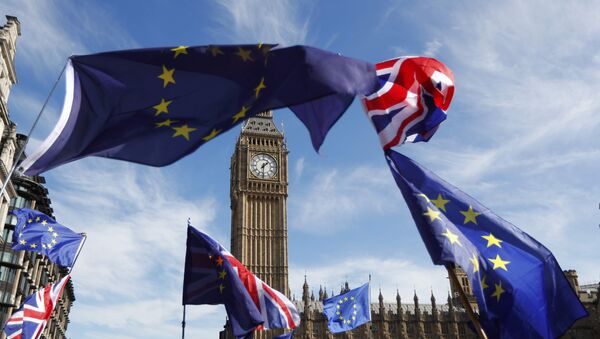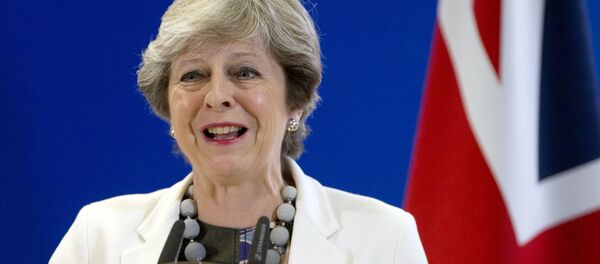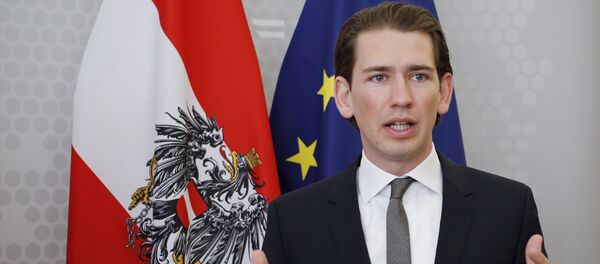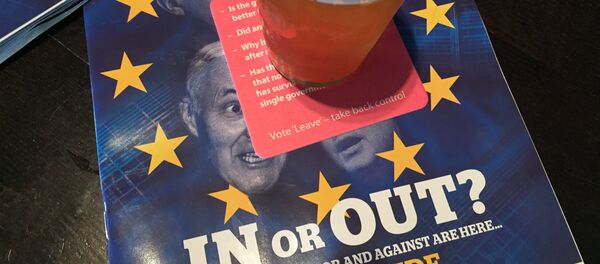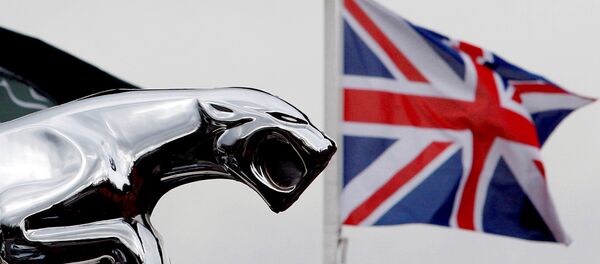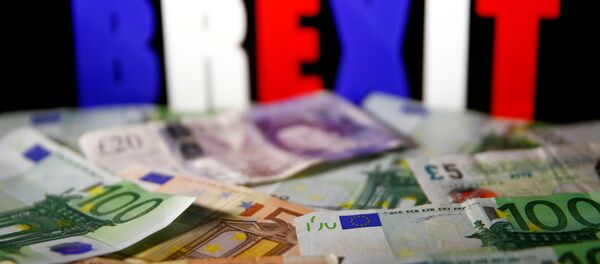Radio Sputnik discussed this with Dr. Nikos Skoutaris, a specialist in conflict resolution and European Union law at the University of East Anglia.
Sputnik: Even if the Conservative Party does unite and come up with a proposal for the customs checks, it still has to be accepted by Brussels. How likely is it that some agreement will be reached by the EU and UK in the near future?
Nikos Skoutaris: The agreement between the Cabinet ministers is not enough in order to have a customs plan after Brexit. The EU has to actually agree on that. Now how likely is it that the EU will agree? I think it would very much depend on the proposal.
We have very conflicting reports about what’s in the proposal and we also have conflicting reports as to whether the EU has already seen an earlier draft.
But even if the EU has seen an earlier draft, as some newspapers have suggested, this earlier draft has not met enthusiasm in the EU. The EU has already expressed some concerns about what’s in the proposal, allegedly.
Nikos Skoutaris: Last August, a year ago, the UK came up with two proposals on two customs arrangements. One has come to be called “max-fac,” which comes from maximum facilitation, which is pretty much a proposal that says that we’re going to use the best technological solutions that exist in the world; we’re going to buy them here in the UK, there will be a customs border, but this will be highly technological and the disruption will be minimal.
The second proposal was what they call the customs partnership, which is a very sophisticated arrangement, according to which the UK will have its own customs laws, but it will actually apply EU law and then the UK will be paying the difference. It’s a very innovative and some people say totally imaginative and not realistic solution.
The EU has said that neither of those two proposals is satisfactory for a number of reasons, most importantly, because neither of those two proposals solves the Irish border issue. The EU has made clear that neither of these two proposals will they be happy to agree with.
Nikos Skoutaris: The EU is actually quite clear in what it wants. The EU has offered the UK two different scenarios in a post-Brexit world. One scenario is what we would call the Canada scenario – the EU and the UK will have a free trade arrangement after Brexit, an arrangement that will look like the tens of arrangements that the EU has with different countries – Canada, Korea, Singapore etc. It’s pretty much a free trade arrangement, free movement of goods but not a customs union.
The second arrangement is the Norway arrangement that the UK will be still in the single market the same way that Norway [is]. The problem with the first arrangement is that in the eyes of the UK, it’s not ambitious enough, it doesn’t express, it doesn’t solve what the UK wants in the future with the EU.
The problem with the second arrangement is that it comes with the free movement of persons and the UK doesn’t want to have a free movement of persons in the future. So the UK seems to want something in-between, but it’s not quite clear whether the EU will actually accept this in-between situation.
Nikos Skoutaris: It doesn’t seem [clear] how they will reach a meaningful compromise that would be accepted by the EU. In fact, Jean-Claude Juncker, the president of the Commission, asked the UK to come up with a unified view because we cannot deal with a split Cabinet.
Now with regard to the businesses, it’s true that Jaguar this week has actually said that a hard Brexit would mean that they would have to look at getting out of the UK, creating new plants around Europe and this will jeopardize 40 thousand jobs.
Of course the Conservative Party is a very pro-business party and this at normal times would sound as a serious threat, a serious danger for the UK and this party, but it seems like at least part of the Conservative Party, including the foreign minister, have a more cavalier approach, they think that the businesses should actually restrict or restrain from expressing such views and they should actually follow whatever the government wants to do. It would be very difficult at this moment to have a unified view that would actually bring all the parties together.
Sputnik: Do you think that we’re looking either at hard Brexit or perhaps a no-deal Brexit and how will that affect the EU? Which of those two scenarios would be worse for the EU?
Nikos Skoutaris: A hard Brexit would be very difficult for everybody. Let’s be clear about that. Maybe in the long-run the economies will adapt, but in the short-run a hard Brexit will create a huge disruption on both sides of the tunnel, both in the EU and in the UK. I’m not an economist and I don’t think that even an economist would be able to tell you exactly what a hard Brexit means, because we have never had such a thing. So we’re in uncharted waters, literally.
Both sides know that and I think that till the very end, they will try to avoid a no-deal Brexit.
Even a hard Brexit is better than a no-deal Brexit. The question is whether both sides can find a solution that they can live up to and I think that’s high moment to realize that Brexit will create a disruption, the question is how we can actually minimize this disruption.
Nikos Skoutaris: An absolute no-deal is something that will mean that the day after Brexit, on March 30, 2019, there’ll be an issue even with airplanes landing from the UK to Europe and vice versa, because the whole airline system of Europe, the whole flight system of Europe is part of what we call the open skies agreement.
However, now we’re talking about different shades of a no-deal Brexit, so I think that a catastrophic Armageddon scenario will be avoided.
The views expressed in this article are solely those of Nikos Skoutaris and do not necessarily reflect the official position of Sputnik.
